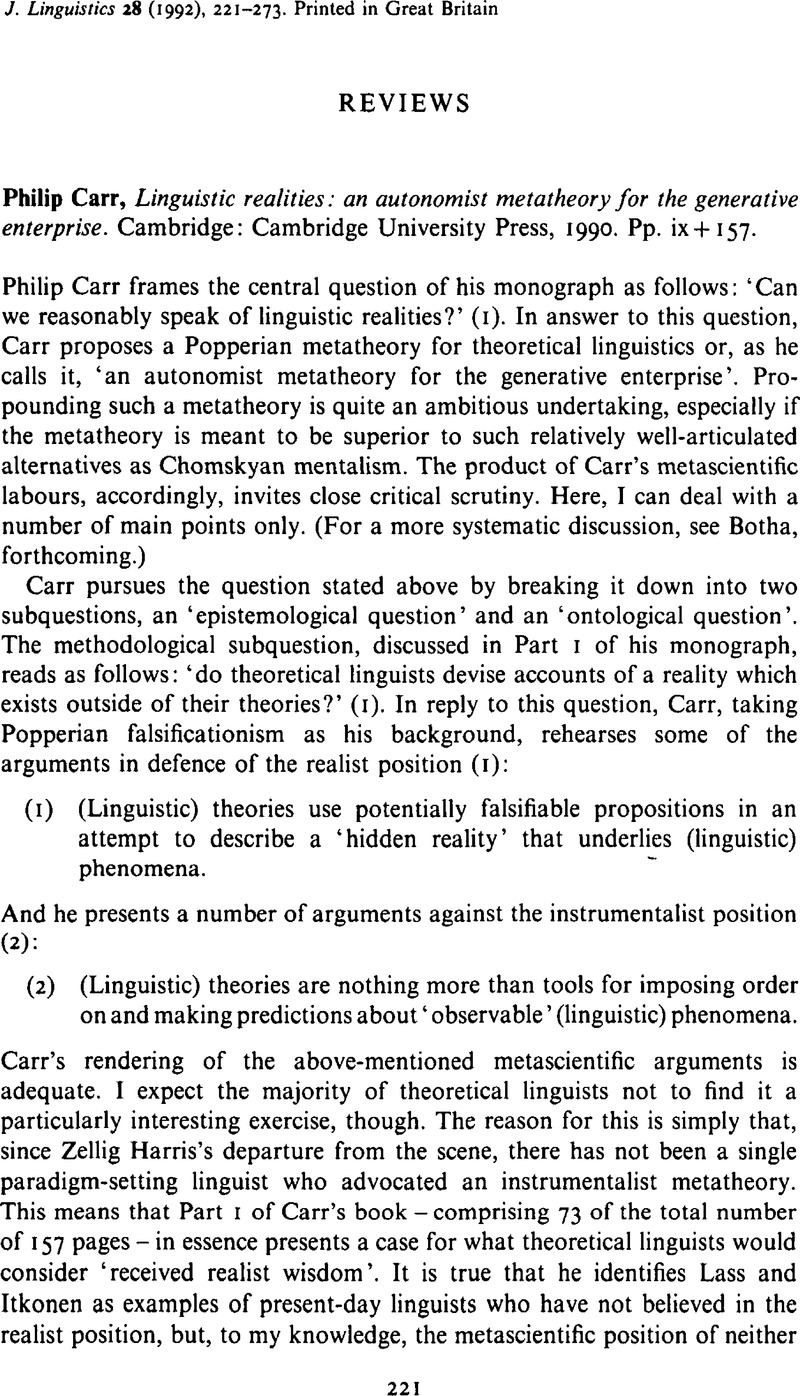Crossref Citations
This article has been cited by the following publications. This list is generated based on data provided by Crossref.
Carr, Philip
1994.
Facthood and reality in linguistics: A reply to Love.
Language & Communication,
Vol. 14,
Issue. 4,
p.
391.


